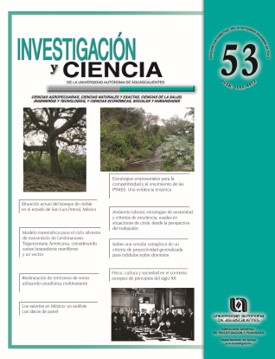Workplace, austerity strategies and excellence issues, used in critical situations from employee´'s perspective
DOI:
https://doi.org/10.33064/iycuaa2011534494Keywords:
Austerity strategies, lay-off, workplace environment, human resourceAbstract
The current crisis being experienced allover the world, started in 2008, and has resulted in many companies having to adopt strategies to deal with this situation. These circunstances have allowed us to do a research in order to determine the relationship between work environment, the austerity strategies and the criteria for excellence. In a sample of 525 workers it was possible to identify that the reduction of budgets in business was far more marked by the people to tackle the crisis, (MD. 3.8629, SD. 1.20) , besides we realized that the strategies used in business austerity do have a negative perception by the worker (the possibility of losing their jobs or hove an uncertain future) that somehow have a negative impact on the workplace.
Downloads
References
ARMSTRONG STASSEN, M.; CATTANEO, J., The effect of downsizing on organizational practices targeting older workers. The Journal of Management Development . 29(4) : pp. 344-363, 201O. DOI: https://doi.org/10.1108/02621711011039150
AYCAN, Z.; KABAZACAL, H., Social Contract and Perceived Justice of Workplace practices to Cope with Financia! Crisis. Group and Organizational Management . 31 (4): pp. 469-502, 2006. DOI: https://doi.org/10.1177/1059601104273063
BEAVER, G.;HUTCHINGS, K.,Training and developing an age diverse workforce in SMEs:The need for a strategic approach. Education & Training. 47(8): pp. 592-604, 2005. DOI: https://doi.org/10.1108/00400910510633134
BECERRA, l., Correlación y efecto entre prácticas organizacionales y actitudes del trabajador mexicano en la industria de las telecomunicaciones. Tesis no publicada, 2006.
DARLING, J.; HELLER, V., The Key for Effective Stress Management: lmportance of Responsive Leadership in Organizational Development. Organization Development Journal. 29( 1): pp. 9-26, 201 1.
FLORES, R.; MADERO, S.; GÓMEZ, J., Abuso de poder jerárquico y consecuencias en el trabajador.Ciencias Administrativas . Teoría y Praxis. l(5): pp. 63-86, 2009.
FOSS, K., How do economic crises impact firm boundaries? European Management Review . 7(4): pp. 217-227, 2010. DOI: https://doi.org/10.1057/emr.2010.19
KELLER, G.F., Comparing the Affects of Management Practices on Organizational Performance Between For-Profit and Not-For-Profit Corporations in Southeast W isconsin. Journal of Business & Economics Research. 9(3): pp. 29-37, 201 1 . DOI: https://doi.org/10.19030/jber.v9i3.4127
KIM, Y.; RHEE, M., The Contingent Effect of Social Networks on Organizational Commitment: A Comparison of Instrumental and Expressive Ties in a Multinational High-Technology Company. Social Perspectives . 53(4) : pp. 479-502, 2010. DOI: https://doi.org/10.1525/sop.2010.53.4.479
LALONDE, C., Crisis Management and Organizational Development: Towards the Conception of a Learning Model in Crisis Management. Organization Development Journal . 25(1) : pp. 17-26, 2007.
MADERO, S., Factores de atracción y retención del mercado laboral, para empleados potenciales. Economía, Gestión y Desarrollo. 7: pp. 131-147, 2009.
MADERO, S.; FLORES, R., Predictores no financieros del compromiso de continuidad: Un estudio cuasi experimental. Revista Investigación Administrativa. 103: pp.7-20, 2009.
Ng, T.; FELDMAN, D., The Relationships of Age with Job Attitudes: a Meta-Analysis. Personnel Psychology. 63(3): pp. 677-718, 2010. DOI: https://doi.org/10.1111/j.1744-6570.2010.01184.x
PURSER, R., Developing Awareness of Time in Organizational Change. Organization Development Journal. 29(1 ): PP. 45-62, 201 1 .
Downloads
Published
How to Cite
License
Copyright (c) 2011 Sergio Manuel Madero Gómez

This work is licensed under a Creative Commons Attribution-NonCommercial-ShareAlike 4.0 International License.
Las obras publicadas en versión electrónica de la revista están bajo la licencia Creative Commons Atribución-NoComercial-CompartirIgual 4.0 Internacional (CC BY-NC-SA 4.0)









